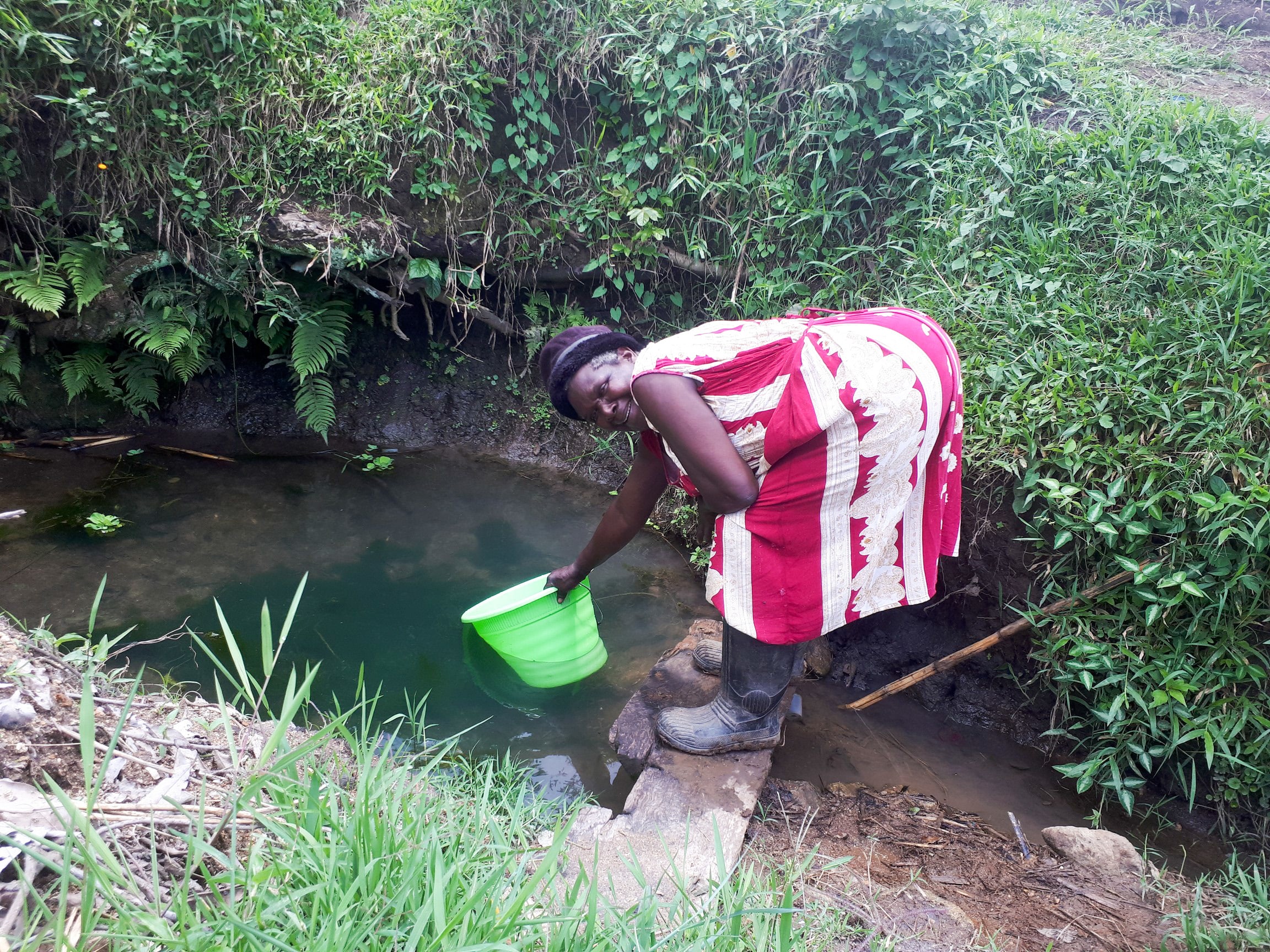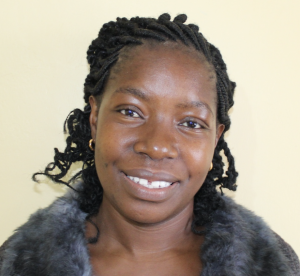"We try to sieve water from this spring but it doesn't help in treating the contamination of the water. We get sick frequently and we suffer a lot, especially the children. We earn very little money from farming that hardly caters for our basic needs and yet we have to spend more on hospital bills," said Mrs. Miriam Ndevera.

180 people living in Malava rely on dirty water from Ndevera Spring. The water is visibly dirty and unsafe for human consumption, but since the community members have no alternative they drink it and use it for other activities around their homes.
The community members contract waterborne diseases from drinking this water. This weakens their bodies and decreases their productivity throughout the day. They also spend a lot of money on hospital bills that could otherwise be used in the development of their livelihoods.
The community members in this region are mostly farmers, getting their income from selling sugarcane, maize, sweet potatoes, and dairy products. Motorbikes are the most common mode of transport, and the young men in the community have taken advantage of this by purchasing motorbikes of their own to provide taxiing services for a fee.
What we can do:
Training
"I am a pastor and I preach to the congregation that cleanliness is next to godliness, but most people in my community don't keep their bodies and environment clean. They need to be trained more on proper sanitation and improved hygiene so that they can improve their hygienic standards," said community members and pastor Isaac Mwanzo.
Community members will attend hygiene and sanitation training for at least two days. This training will ensure participants have the knowledge they need about healthy practices and their importance. The facilitator plans to use PHAST (Participatory Hygiene and Sanitation Transformation), CLTS (Community-Led Total Sanitation), ABCD (Asset-Based Community Development), group discussions, handouts, and demonstrations at the spring. One of the most important topics we plan to cover is the handling, storage, and treatment of water. Having a clean water source will be extremely helpful, but it is useless if water gets contaminated by the time it’s consumed. Handwashing will also be a big topic.
Training will also result in the formation of a committee that will oversee operations and maintenance at the spring. They will enforce proper behavior around the spring and delegate tasks that will help preserve the site, such as building a fence and digging proper drainage. The fence will keep out destructive animals, and the drainage will keep the area’s mosquito population at a minimum.
Sanitation Platforms
Less than half of the households relying on Ndevera Spring have a pit latrine of their own.
The condition of the latrines we observed is poor since they are dirty and smelly. Their floors are made of mud, and women or children use their bare hands to smear cow dung on the floor as a way of cleaning it. There is no water kept near the latrines, meaning they don't wash their hands after using the latrines.
On the final day of training, participants will select five families that should most benefit from new latrine floors.
Training will also inform the community and selected families on what they need to contribute to make this project a success. They must mobilize locally available materials, such as bricks, clean sand, hardcore, and ballast. The five families chosen for sanitation platforms must prepare by sinking a pit for the sanitation platforms to be placed over. All community members must work together to make sure that accommodations and food are always provided for the work teams.
Spring Protection
Mrs. Ndevera, the landowner where the spring is situated, lost her husband many years ago and took care of her children single-handedly. The children are now adults, married and with their own children. Her wish is to have the spring protected so that it can provide safe and clean water not only to her family, but also to other community members.
Protecting the spring will ensure that the water is safe, adequate and secure. Construction will keep surface runoff and other contaminants out of the water. With the community’s high involvement in the process, there should be a good sense of responsibility and ownership for the new clean water source.
Fetching water is predominantly a female role, done by both women and young girls. Protecting the spring and offering training and support will, therefore, help empower the female members of the community by giving them more time and efforts to engage and invest in income-generating activities.
"The protection of the spring will be a dream come true for me since I have been wishing for this for so many years. My children have suffered a lot from waterborne diseases, especially when they were young," said Mrs. Ndevera.
"My grandchildren don't have to go through the same suffering... We will forever be grateful."

 Protected Spring
Protected Spring
 Rehabilitation Project
Rehabilitation Project










































